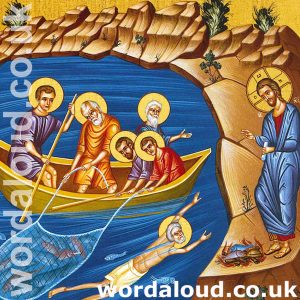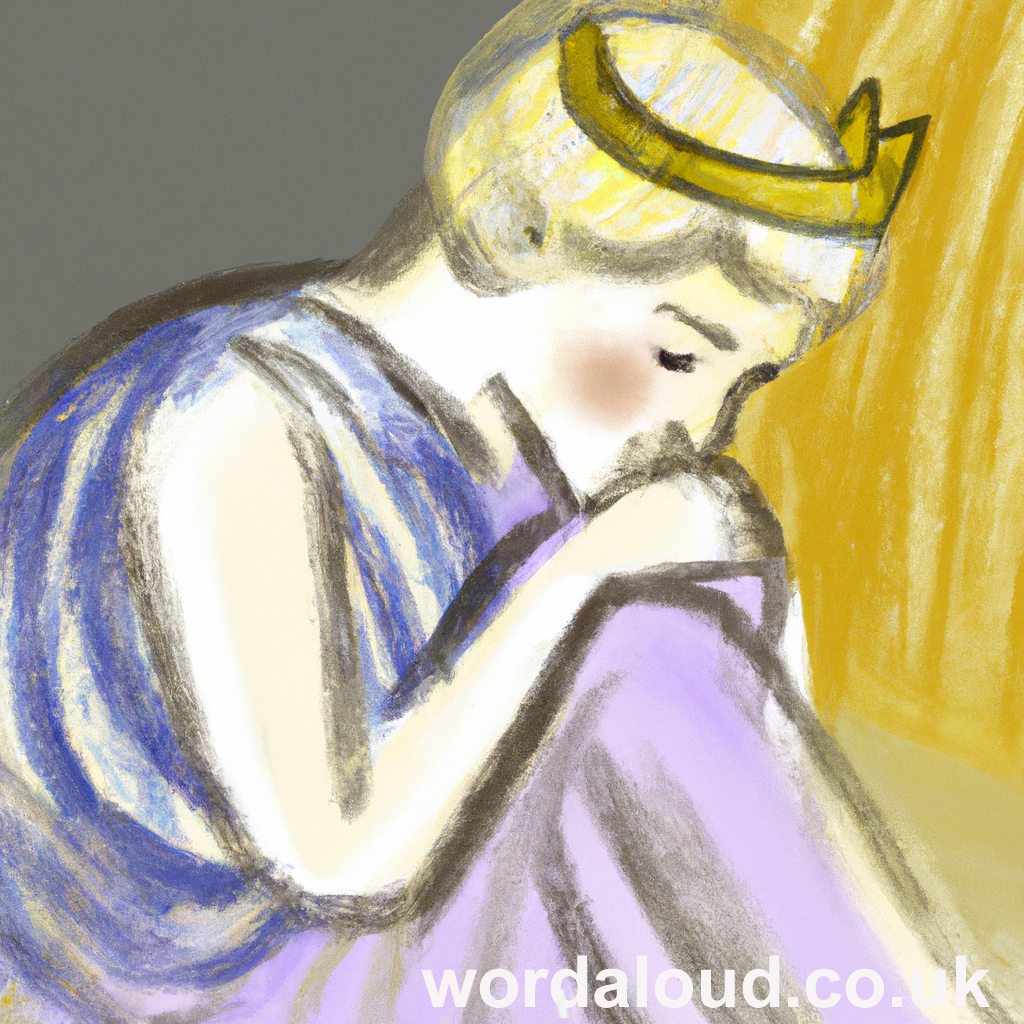Christian Art | Jesus Preaches To The Multitudes On The Shore
Office Of Readings | Week 30, Thursday, Ordinary Time | A Reading From The Discourses Of Saint Athanasius Against The Arians | Wisdom’s Likeness And Image Is In God’s Works
‘Wisdom’s likeness and image is in God’s works.’
In his discourse, Saint Athanasius explores how divine Wisdom—identified with the eternal Word, the Son—imprints itself within creation. Saint Athanasius’s argument responds to Arian claims that the Son was a created being. For Athanasius, the phrase ‘The Lord created me in his works’ cannot mean that the eternal Wisdom itself was made; rather, it refers to the reflection or imprint of Wisdom in the created order.
Athanasius begins with the idea that Wisdom has impressed its likeness upon all created things. The world, ordered and intelligible, bears within it a trace of the divine Word who formed it. When Scripture records Wisdom as saying, ‘The Lord created me,’ it is the created reflection of divine Wisdom that speaks—Wisdom as it exists within creation, not Wisdom as it exists in God. This distinction allows Athanasius to preserve the divinity and eternity of the Word, while also affirming the presence of divine order within the cosmos.
This imprint of Wisdom serves a revelatory function. Through creation’s harmony and intelligibility, the world itself points beyond to its Maker. Athanasius cites Saint Paul’s assertion that ‘God’s invisible nature is clearly perceived in the things that have been made’. The rational and moral capacities within humanity are part of this imprint; through them, humanity can recognise both the Creator and the structure of divine order. Thus, Wisdom in creation functions as a bridge between the uncreated Word and the visible world.
Athanasius also distinguishes between ‘creative Wisdom’ (the eternal Word) and ‘created wisdom’ (the participation of creatures in that Word). Scripture frequently attributes wisdom to human beings—wise rulers, prudent speech, skill in craftsmanship, and understanding of moral order. These instances refer to a derivative, participatory wisdom, a gift from the divine source. The Book of Sirach captures this relationship: ‘The Lord has poured it out upon all his works.’ The Wisdom that creates is not poured out; rather, it is mirrored in what it sustains.
For Athanasius, the visible world and the moral life together manifest this image. When the heavens declare the glory of God, they reflect not merely power but the rational coherence of divine Wisdom. The created wisdom seen in order, proportion, and truth is a participation in the archetypal Wisdom who is Christ. Through contemplating creation, humanity is invited to perceive the eternal Word and, through the Word, to know the Father. This structure of likeness and participation preserves both divine transcendence and intimate providence within creation.

A Reading From The Discourses Of Saint Athanasius Against The Arians | Wisdom’s Likeness And Image Is In God’s Works
An impress of Wisdom has been created in us and in all his works. Therefore, the true Wisdom which shaped the world claims for himself all that bears his image, and rightly says: The Lord created me in his works. These words are really spoken by the wisdom that is in us, but the Lord himself here adopts them as his own. Wisdom himself is not created, because he is the Creator, but by reason of the created image of himself found in his works, he speaks thus as though he were speaking of himself. Our Lord said: He who receives you receives me, and he could say this because the impress of himself is in us. In the same way, although Wisdom is not to be numbered among created things, yet because his form and likeness is in his works, he speaks as if he were a creature, and says: The Lord created me in his works, when his purpose first unfolded.
The likeness of Wisdom has been stamped upon creatures in order that the world may recognize in it the Word who was its maker and through the Word come to know the Father. This is Paul’s teaching: What can be known about God is clear to them, for God has shown it to them. Ever since the creation of the world his invisible nature has been there for the mind to perceive in things that have been made. Accordingly the Word is not a creature, for the passage that begins: The Lord created me . . . is to be understood as referring to that wisdom which is truly in us and is said to be so.
But if this fails to persuade our opponents, let them tell us whether there is any wisdom in created things. If there is none, why does the apostle Paul allege as the cause of men’s sins: By God’s wisdom, the world failed to come to a knowledge of God through wisdom? And if there is no created wisdom, how is it that the expression a multitude of wise men is found in Scripture? And again, Scripture testifies that the wise man is wary and turns away from evil, and by wisdom is a house built. Further, Ecclesiastes says: A wise man’s wisdom will light up his face. He also rebukes presumptuous persons with the warning: Do not say, ‘How is it that former days were better than these?’ For it is not in wisdom that you ask this.
So there is a wisdom in created things, as the son of Sirach too bears witness: The Lord has poured it out upon all his works, to be with men as his gift, and with wisdom he has abundantly equipped those who love him. This quality of being ‘poured out’ belongs not to the essence of that self-existent Wisdom who is the Only-begotten, but to that wisdom which reflects the only begotten on in the world. Why then is it beyond belief if the creative and archetypal Wisdom, whose likeness is the wisdom and understanding poured out in the world, should say, as though speaking directly of himself: The Lord created me in his works? For the wisdom in the world is not creative, but is itself created in God’s works, and in the light of this wisdom the heavens declare the glory of God, and the firmament proclaims the work of his hands.
Christian Prayer With Jesus
O God, source of all order and fountain of true Wisdom,
you have imprinted your likeness upon all that you have made,
so that creation might speak of its Creator.
Grant that we may discern your Wisdom in the world around us,
and through the contemplation of your works
be led to a clearer knowledge of your Word,
by whom all things were made and through whom all are sustained.
Keep us faithful to the truth revealed in your Son,
that, guided by the light of your Spirit,
we may grow in understanding without pride,
and in knowledge that leads to reverence.
Through our Lord Jesus Christ, your eternal Word,
who lives and reigns with you in the unity of the Holy Spirit,
one God, forever and ever.
Amen.
Glossary Of Christian Terms
Impress – A stamped likeness or imprint. Athanasius uses the term to describe how divine Wisdom leaves a recognisable trace or pattern within the created order.
Archetypal – Referring to the original or perfect model. The divine Wisdom is the archetype of all created wisdom, which mirrors it imperfectly.
Participatory Wisdom – The created world shares, or participates, in divine Wisdom without being identical to it. This idea safeguards both divine transcendence and the world’s intelligibility.
Ontological – Relating to being or existence. Athanasius distinguishes the uncreated, ontological Wisdom (the Son) from the contingent, created wisdom that exists within the world.
Providence – The divine ordering and care that sustains creation. In Athanasius’s theology, the world’s rational coherence is itself an act of providence.
Arianism – The fourth-century teaching that the Son of God was created and therefore not co-eternal with the Father. Athanasius’s writings systematically refute this position.
Logos – The Word or divine Reason through which all things were made. The Logos is both the creative principle of the universe and the eternal Son of the Father.
Analogy of Being (Analogia Entis) – The idea that creation reflects God’s being analogically, not identically. The world points toward the divine but does not share in the divine essence.
Contemplation – The intellectual or spiritual act of discerning God through created reality. For Athanasius, the order of nature leads the contemplative mind to its Creator.
Teleology – The explanation of phenomena by reference to their purpose or final end. The order of creation reveals that it is directed toward the knowledge of and communion with God.
Emanation – A philosophical term describing the flowing forth of being from a higher source. In Christian thought, this term is used carefully to express how creation derives from God without implying that God is diminished or divided.
Subordinationism – The belief that the Son or the Spirit is inferior in essence or being to the Father. Athanasius rejects this as incompatible with the co-equality of the Trinity.
Incarnation – The act by which the eternal Word took on human nature. In Athanasius’s theology, the Incarnation reveals in history the same divine Wisdom that is reflected in creation.
Rational Order – The structured, intelligible arrangement of reality. For Athanasius, this rationality is a sign of the Word’s presence in all things, inviting the human intellect to recognise its source.








